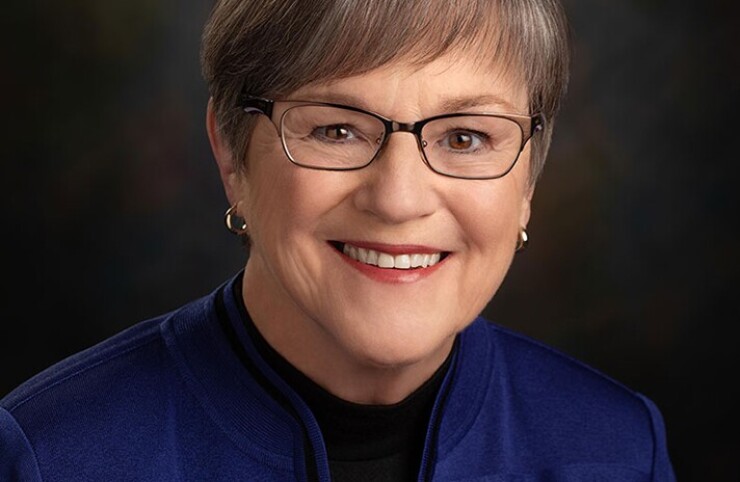Kansas Gov. Laura Kelly on Wednesday vetoed tax cut legislation that she called "too expensive" and offered lawmakers a less-costly alternative.
The Democratic governor, who in January vetoed a previous tax reduction bill passed by the Republican-controlled legislature, said the latest measure "jeopardizes our state's future fiscal stability."
House Bill 2036, which cleared the House in a 119-0 vote and the Senate in a 24-9 vote earlier this month, includes

"Since becoming governor, my administration has been laser-focused on getting us back on track, so we don't go back to the days of four-day school weeks, crumbling roads and bridges, and crippling debt," Kelly said in a statement, referring to the fallout from tax cuts enacted under former Gov. Sam Brownback. "This bill is too expensive and risks reversing the progress we've made. "
She offered an alternative plan that would cost the state nearly $1.3 million from fiscal 2025 through 2027 that includes elements of the vetoed legislation, like accelerating the elimination of the state sales tax on food and ending state taxation of Social Security income.
A veto override attempt will begin in the House, where Republican Speaker Dan Hawkins expressed frustration given the bill's bipartisan support.
"One by one we've overcome Gov. Kelly's objections to delivering your money back to you in the form of property, income, Social Security, and sales tax relief," he said in a statement. "And every time, the governor moves the goalposts and vetoes the bill."
Unlike the previous vetoed bill that called for a flat personal income tax, the latest bill would shrink the number of tax brackets to two from three and drop the top rate to 5.55% from 5.7%.
Republican Kansas Senate President Ty Masterson also vowed to work to override the veto.
"Over the course of her tenure, the governor has rejected over 75 tax cuts, preferring to keep record surpluses in government coffers rather than returning it to the people," he said in a Facebook post.
Kansas has built up its budget balances and reserves, which S&P Global Ratings noted when it
Fitch Ratings, which in January released its first-ever issuer default rating for Kansas at AA, cited the state's "sustained trend of structurally balanced budgets" and the rebuilding of fiscal reserves to levels well above historical norms.
The state has tapped its
A revenue estimate released last week showed





